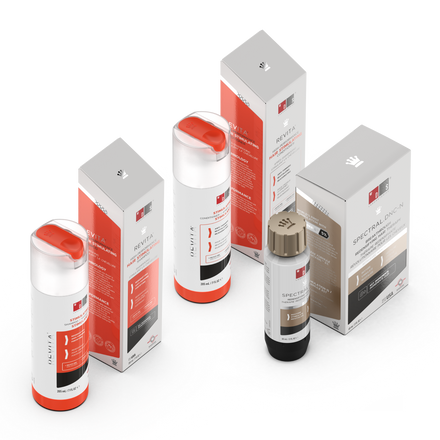Our genetics play a significant role in determining our hair texture, maximum length, amount of hair, color, and thickness. In fact, our DNA is largely responsible for controlling the hair growth cycle. Thus, we often see similar hair growth patterns among family members. Not surprisingly, hair loss can also occur in families.
One of the most common causes of hair loss in both men and women is androgenic alopecia. Also referred to as male- and female-pattern baldness, this type of hair loss is rooted in our genetics and can be seen s a form of hereditary hair loss.
Men with this form of hair loss often experience a receding hairline, balding in the shape of a ‘V,’ or crown thinning. Women with this type of hair loss generally have hair thinning all over the head, and it is most noticeable on the temples and part line. Unlike men, women rarely experience complete hair loss due to androgenic alopecia.
Regrettably, there is little we can do to change our genetics. However, certain behaviors and interactions within our environment can alter the expression of our genes. If you have hair loss and think your genetics may be a trigger, there are steps you can take to minimize your hair loss.
What to do if your genetics are triggering hair loss-
- Early preventative measures are essential when it comes to managing genetic hair loss. If you have family members with hair loss, but you haven’t started losing hair yet, now is the perfect time to implement the right hair care strategies. For example, using a shampoo and conditioner that decreases inflammation and is hydrating for your scalp and hair is beneficial. Similarly, you may want to consider using a sulfate-free shampoo, as sulfates can strip your hair and scalp of your natural oils.
- Focusing on healthy lifestyle habits can ward off hair loss. Try to reduce stress as much as possible and prioritize healthy stress-relieving activities. Additionally, eating a healthful diet can support all of your cells, including the rapidly-dividing cells in your hair.
- Re-growing your hair is tricky if you have androgenic alopecia. However, there are options that not only restore your hair but also prevent further hair loss. Fortunately, newer products do not have unpleasant side effects like itching and irritation that is common with older products. Look for hair re-growth products containing Nanoxidil 5%.










